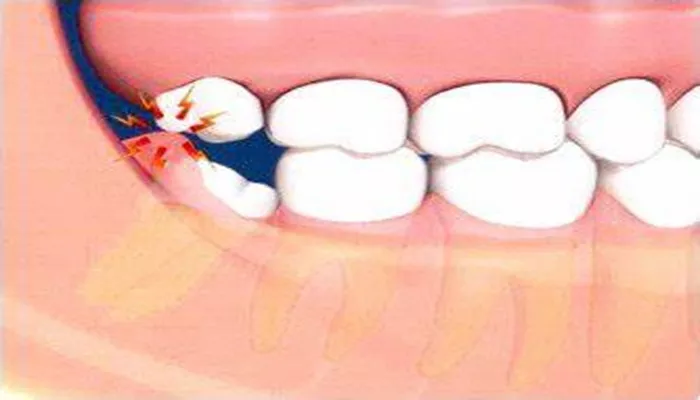Wisdom teeth, also known as third molars, typically emerge in late adolescence or early adulthood. For many people, these teeth can cause various dental issues, leading to extraction. One common question patients have is whether upper wisdom teeth heal faster than lower wisdom teeth. In this article, we will explore the healing process of wisdom teeth, the differences between upper and lower wisdom teeth, and factors that influence healing time.
Understanding Wisdom Teeth
Wisdom teeth are the last set of molars that usually erupt in the back of the mouth. Most people have four wisdom teeth, one in each quadrant of the mouth. However, some individuals may have fewer or none at all. These teeth can cause problems due to:
Impaction: Wisdom teeth may not have enough space to emerge properly, leading to impaction.
Infection: Partially erupted wisdom teeth can create openings for bacteria, increasing the risk of infection.
Crowding: Wisdom teeth can push against adjacent teeth, causing misalignment.
The Healing Process After Extraction
When wisdom teeth are extracted, the healing process begins. Understanding this process can help answer the question of whether upper wisdom teeth heal faster than lower wisdom teeth.
1. Initial Healing
The initial healing phase occurs within the first few days after extraction. During this time, the body works to stop the bleeding and form a blood clot in the extraction site. This clot is crucial for healing and helps protect the bone and nerves underneath.
2. Tissue Repair
After the initial healing phase, the body begins to repair the tissue. This process can take several weeks. New tissue will form over the extraction site, and the gum will gradually close.
3. Bone Healing
Bone healing is a slower process. The bone where the tooth was extracted will take several months to fully heal. During this time, new bone cells will form to fill the space.
Differences Between Upper and Lower Wisdom Teeth
There are notable differences between upper and lower wisdom teeth that can affect the healing process.
1. Position and Accessibility
Upper Wisdom Teeth: Typically, upper wisdom teeth are easier to access during extraction. The roots of upper wisdom teeth are often shorter and less curved than those of lower wisdom teeth. This can lead to a quicker extraction process and potentially faster initial healing.
Lower Wisdom Teeth: Lower wisdom teeth are often more challenging to extract due to their position in the jaw. They may have longer, more curved roots and can be impacted more frequently. This complexity can lead to a longer extraction time and a more extensive healing process.
2. Infection Risk
Upper Wisdom Teeth: While upper wisdom teeth can also become infected, they are generally less prone to complications.
The open space in the upper jaw allows for better drainage and less pressure buildup.
Lower Wisdom Teeth: Lower wisdom teeth are more susceptible to infections due to their location and the difficulty of keeping the area clean. If an infection occurs, it can significantly delay the healing process.
3. Bone Density
Upper Jaw: The bone in the upper jaw is generally less dense than that in the lower jaw. This can lead to faster healing times for upper wisdom teeth, as the body may be able to remodel the bone more quickly.
Lower Jaw: The denser bone in the lower jaw can slow the healing process. Additionally, if the lower wisdom teeth are impacted, the surrounding bone may be more traumatized during extraction, further prolonging healing.
Factors Influencing Healing Time
Several factors can influence the healing time of both upper and lower wisdom teeth. These include:
1. Age
Younger patients tend to heal faster than older patients. As we age, the body’s healing processes slow down. This means that younger individuals may experience quicker healing after wisdom tooth extraction, regardless of whether the teeth are upper or lower.
2. Overall Health
A patient’s overall health plays a significant role in healing. Individuals with chronic health conditions, such as diabetes or autoimmune disorders, may experience slower healing times. Additionally, smokers typically heal more slowly than non-smokers due to reduced blood flow and oxygen to the healing tissues.
3. Post-Operative Care
Proper post-operative care can significantly influence healing time. Following the dentist’s or oral surgeon’s instructions regarding:
Rest: Avoiding strenuous activities can help the body focus on healing.
Diet: Eating soft foods and staying hydrated can promote healing.
Oral Hygiene: Maintaining good oral hygiene while avoiding the extraction site can prevent infection and promote faster healing.
4. Complications
Complications such as dry socket (when the blood clot dislodges) or infection can significantly delay healing. Dry socket is more common in lower wisdom teeth extractions and can lead to severe pain and longer recovery times.
Comparing Healing Times
While individual experiences may vary, some general trends can be observed regarding the healing times of upper and lower wisdom teeth:
Upper Wisdom Teeth: Typically, patients may notice that the initial healing phase is faster for upper wisdom teeth. The extraction site may feel better within a few days, and swelling may subside quickly.
Lower Wisdom Teeth: Healing from lower wisdom tooth extraction may take longer. Patients often experience more discomfort, swelling, and a longer period before the extraction site feels normal.
Conclusion
In summary, while upper wisdom teeth may heal faster than lower wisdom teeth in many cases, individual healing times can vary based on several factors. The ease of extraction, risk of infection, bone density, and overall health all play critical roles in the healing process.
If you are considering wisdom tooth extraction or have concerns about healing, consult with your dentist or oral surgeon.
They can provide personalized advice and care to ensure a smooth recovery. Remember, following post-operative instructions is essential for minimizing complications and promoting faster healing, regardless of whether your wisdom teeth are located in the upper or lower jaw.
Related topics:

